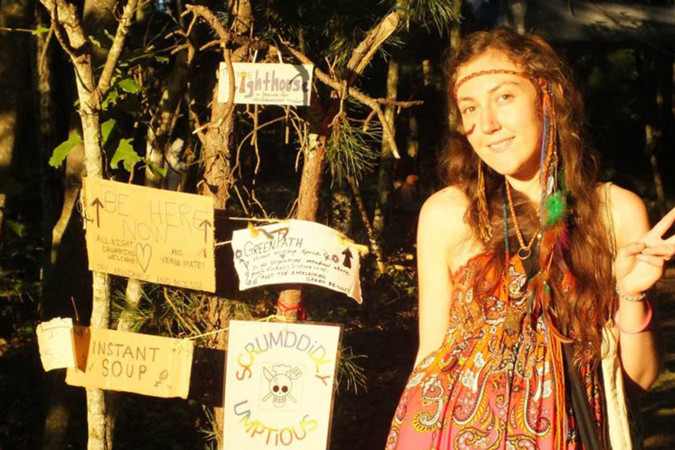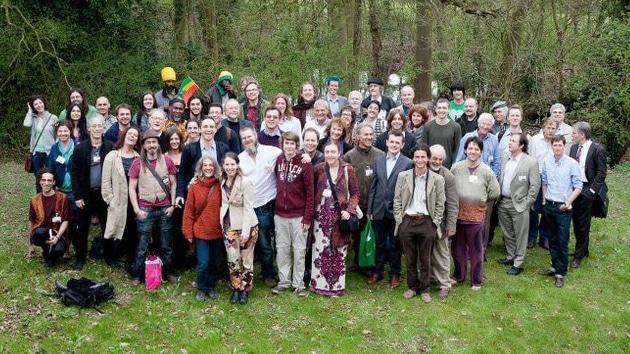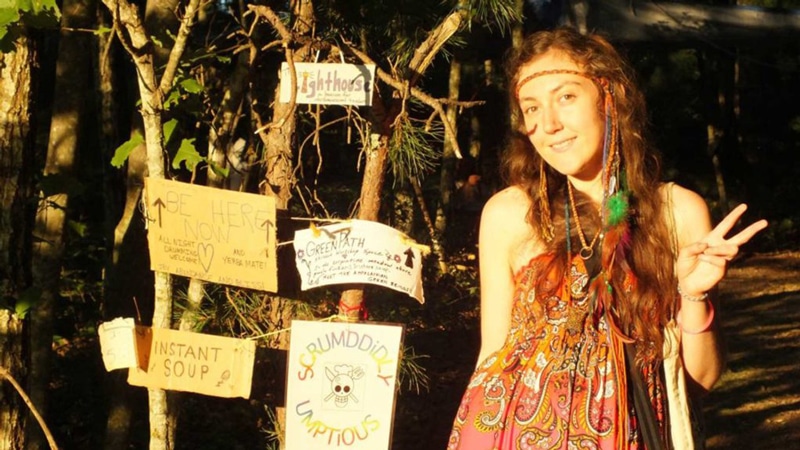Coming Out of the Psychedelic Closet: Final Thoughts

Psymposia is a 501(c)(3) nonprofit research and media organization that offers critical perspectives on drugs, politics, and culture. We rely on contributions from our readers and listeners. Your support is vital to sustaining Psymposia.
Support Psymposia’s independent journalism on Patreon and help us drive the Mystery Machine! We’re a bunch of meddling kids who are unmasking the latest shenanigans on the psychedelics beat.
Discussions about psychedelics, identity, and disclosure inevitably provoke strong emotional responses. As the Teafaerie describes in her essay, these emotions sometimes make it difficult to continue the conversation. The diversity of perspectives represented here is encouraging, since it is only through respectful dialogue that we can learn from one another and refine our thinking about these timely issues. With this spirit of openness in mind, I will close with some reflections on the varied perspectives offered here.
Some of the respondents reject using words like “discrimination” and “oppression” in the context of people who use psychedelics, arguing that the social costs are miniscule and asymmetric when compared to those that attend the widespread prejudices against racial, sexual, and gender minorities. While I agree that the challenges are not identical in either scope or severity, the claim that things could be much worse is not a sufficient justification for silencing other critiques of marginalization.
As a scholar of intersectionality, I agree with Vivian M. May’s argument in Pursuing Intersectionality, Unsettling Dominant Imaginaries that since systems of oppression are “enmeshed and mutually reinforcing,” one form of inequality should not be treated as “superordinate” and used to silence other struggles for self-determination and equality. Intersectional activists have emphasized that the “single-axis” approach to social justice that focuses on individual groups often leaves the operative logics of discrimination unchallenged.
By restricting forms of redress to sanctioned groups, single-axis tactics risk reinforcing the very foundations of inequality and discrimination that resulted in the problem to begin with.
As May describes, “many equality strategies paradoxically legitimize and even expand the forms of violence and harm they seek to dismantle, in large part because they do not depart from the binary logics and hierarchical processes that undergird inequality.”
In her presentation at the 2012 Psychedemia psychedelics conference, Dr. Julie Holland contrasts psychedelic psychotherapy with traditional pharmaceutical approaches to treating psychological distress. Instead of “sweeping dirt under the rug” by treating symptoms with daily medication, Dr. Holland describes psychedelic psychotherapy as addressing the root causes of suffering, or “taking your rug out back and beating it with a stick.”
Rather than treating oppression through a game of whack-a-mole with infinitely proliferating groups and grievances, the inclusion of psychedelic use in discussions about social justice is important precisely because of this impulse to exclude it from consideration. By denying the transferability of social justice struggles beyond pre-ordained categories, I argue that these detractors rely on the very us/them logic that creates conditions of oppression to begin with.
In order to dismantle the foundations of discrimination, we must learn to cultivate tolerance for and extend hospitality towards differences of all kinds.
In arguing against the relevance of psychedelic use to movements for social justice, Emma contrasts queer identity from psychedelic identity according to differing levels of vulnerability to the negative consequences of disclosure. In describing an unequal “continuum of violence” between these groups, Emma compares psychedelic discrimination to merely “talking down to a woman,” while she compares LGBTQ discrimination to forcefully “raping” a woman.
But should we really tolerate verbal abuse of women just because other women are being physically abused? As a survivor of both sexual assault and a verbally abusive relationship, I can attest to the profound psychological impact of both acts of subordination. Emma’s examples, after all, are not unrelated: both threats result from the desire to exert control and dominance over another person, and gender equality is only made possible when this underlying impulse is confronted.
In an April 2016 article in Harper’s Magazine, author Don Baum explicitly describes how the “War on Drugs” was founded on the desire to control minority social populations. He cites John Ehrlichman, a top aide to Richard Nixon:
“The Nixon campaign in 1968, and the Nixon White House after that, had two enemies: the antiwar left and black people. […] We knew we couldn’t make it illegal to be either against the war or black, but by getting the public to associate the hippies with marijuana and blacks with heroin, and then criminalizing both heavily, we could disrupt those communities. We could arrest their leaders, raid their homes, break up their meetings, and vilify them night after night on the evening news. Did we know we were lying about the drugs? Of course we did.”

Beyond this historical connection between drug laws and social control, there continue to be very real and very troubling consequences to disclosing psychedelic use. People who choose to take psychedelics run the risk of losing their jobs, being disowned by their families, and losing their children to state custody. These are not insignificant dangers.
There are people like Timothy Tyler, who is serving a life sentence without the possibility of parole for the nonviolent charge of “conspiracy to possess LSD with intent to distribute” even though he viewed LSD as a spiritual sacrament. As a follower of the Grateful Dead, he was locked away in a federal prison where—for two decades—listening to music was forbidden altogether. Another Deadhead was Rudd Walker, who died in prison in 2014 after serving over a decade of a life sentence. Should we not speak up for them, simply because the likelihood of imprisonment for white users of psychedelics is astronomically less than for black drug users?
Even outside of prison, the police also have a history of conscripting drug users into dangerous undercover informant roles under the threat of lengthy prison sentences. Coerced to participate without legal aid or even discussing the arrangement with their parents, young people like Andrew Sadek and Rachel Hoffman have been murdered as a result of botched sting operations.
Beyond the explicit harms to psychedelic users, Emma’s critique fails to account for the indirect harms caused by limited access to psychedelic therapy resulting from stigma and illegality. As Dr. Holland describes, psychedelic therapy shows significant promise in the treatment of a wide range of psychological disorders, including end-of-life anxiety, post-traumatic stress disorder, depression, and addictive substance abuse, among others.
The unavailability of effective treatments for these issues presents implications far beyond the lives of “recreational” psychedelics users. What would the world look like if more of us felt increased connection to the earth and to each other, less afraid of dying, less paralyzed by personal and collective traumas, less imprisoned by destructive habits?

To reiterate, I am not saying that everyone “must” come forward to profess their psychedelic interests and experiences, but I do think that increased disclosure will ultimately help to transform the cultural climate around these substances.
Although some suggest that the movement for increased tolerance of psychedelics might be better served by speaking out anonymously, I think that a greater visibility of the diversity of actual psychedelic users would make it more difficult to cling to one-dimensional stereotypes in the long term.
In the conservative context of institutional review boards and dwindling sources of research funding, I can understand why psychedelic scientists would be particularly reticent to speak out publicly about their personal interests. However, I believe that Dr. Garcia’s proposed “psychonaut’s dilemma” constitutes a false flag rather than a genuine catch-22. It is ridiculous to suggest that personal experience leads to impartial fanaticism on the part of the “compromised” investigator. Is a psychoanalyst “compromised” during training when she is required to undergo psychoanalysis herself?
Just like psychoanalysis, the efficacy of psychedelic therapy is inseparable from the experience of an unfolding subjective process, rather than being reduced to merely chemical alterations in the brain. As Aldous Huxley suggests in The Doors of Perception, an investigator’s familiarity with various stages of this process can be helpful in interpreting the narrative accounts of research subjects, whose “paradoxical” descriptions of non-ordinary states of consciousness might otherwise appear as gibberish to the inexperienced observer.
Regardless of what conclusions we draw, the topic of psychedelics and identity politics is important at a time when public assumptions about psychedelics are transforming. Two days after I submitted the draft of my original essay to Psymposia, Ido Hartogsohn published an essay titled “Psychoactive identity politics: What drug activists could learn from identity activists” on his blog, Psychedelic Cultures. This synchronicity points to the fact that it is time to think critically about psychedelic use beyond the narrow context of therapeutic efficacy.
By expanding the conversation beyond the limitations of medical discourse, we will have to account for the personal significance that psychedelics have for so many people. In aligning the struggle against discrimination with larger social justice issues, we can encourage individuals to organize for the betterment of all marginalized communities.
Hey! Before you go… Psymposia is a 501(c)(3) non-profit media organization that offers critical perspectives on drugs, politics, and culture. We strive to ask challenging questions, and we’re committed to independent reporting, critical analysis, and holding those who wield power accountable.
Our perspectives are informed by critical analysis of the systemic crises of capitalism that have directly contributed to the unmitigated growth of addiction, depression, suicide, and the unraveling of our social relations. The same economic elite and powerful corporate interests who have profited from causing these problems are now proposing “solutions”—solutions which both line their pockets and mask the necessity of structural change.
In order for us to keep unpacking these issues and informing our audience, we need your continuing support. You can sustain Psymposia by becoming a supporter for as little as $2 a month.
Neşe Devenot
Neşe Devenot is the Medicine, Society and Culture Postdoctoral Scholar in Bioethics at the Case Western Reserve University School of Medicine. Previously, she was a founder of the Psychedemia interdisciplinary psychedelics conference, a Research Fellow at the New York Public Library’s Timothy Leary Papers, and a Research Fellow with the New York University Psilocybin Cancer Anxiety Study. She was awarded Best Humanities Publication in Psychedelic Studies from Breaking Convention and received a Women of the Psychedelic Renaissance grant from Cosmic Sister. Her research explores the function of metaphor and other creative uses of language in descriptions of psychedelic experiences, as well as abuses of power and hegemonic social forces within the psychedelic community.





